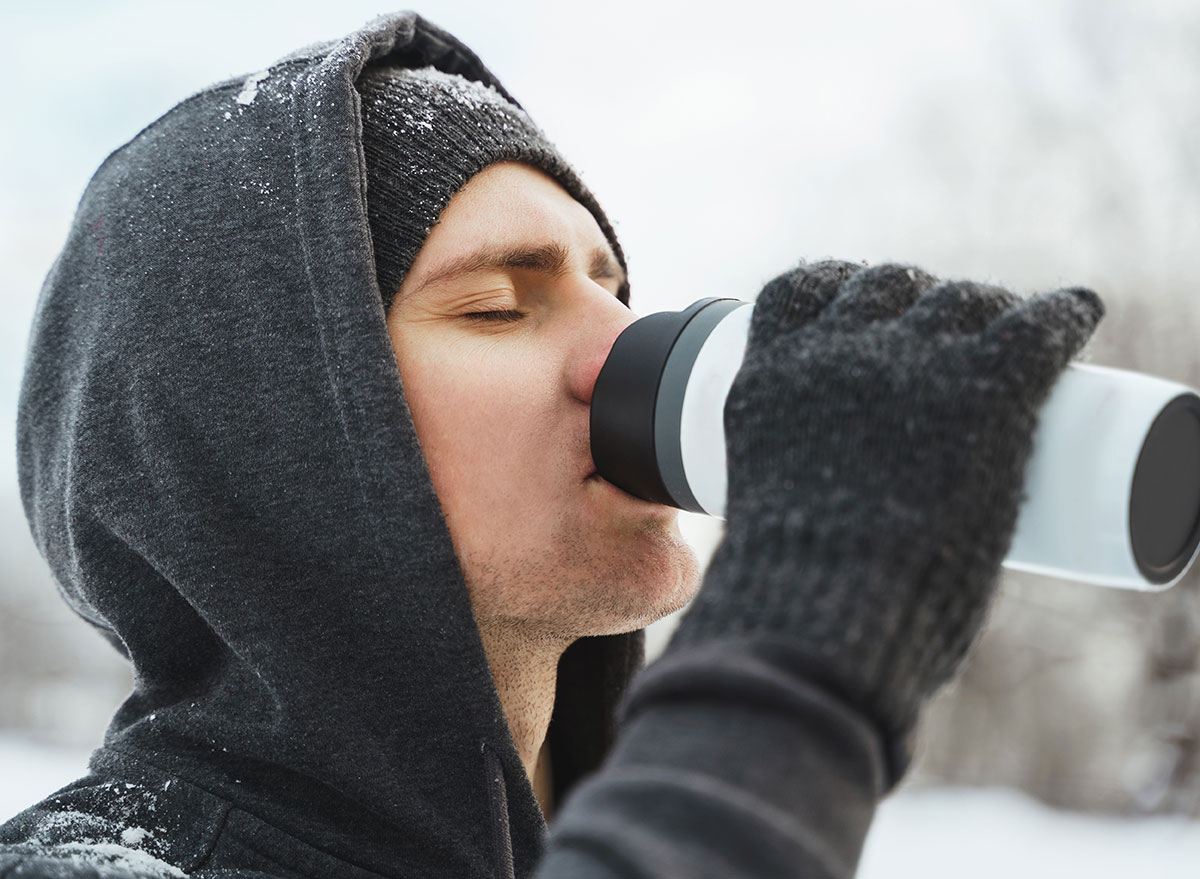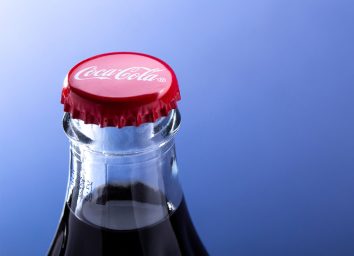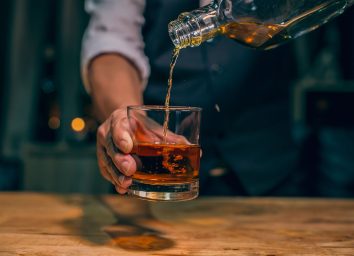Drinking More of This May Reduce Liver Disease Risk, New Study Says

There are many benefits to staying well-hydrated, and just as many downsides to not drinking enough liquids as well. Drinking water is associated with lower body weight, improved exercise performance, lower risk of kidney stones—the list goes on. And while there are many different ways you can get hydrated, like flavored seltzer or sports drinks, new research suggests there may even be major merits to drinking plain water.
A new study published in The European Journal of Clinical Nutrition found that a higher intake of water was associated with a lower risk of being diagnosed with non-alcoholic fatty liver disease (NAFLD).
We still don't fully understand what causes non-alcoholic fatty liver disease. Alcoholic fatty liver disease, as is evident from the name, is the result of fat building up in the liver due to heavy alcohol use. Researchers do know that NAFLD is more common in certain people, like those who have type 2 diabetes and people with high blood pressure, for example. The condition is very common and is estimated to affect about a quarter of the global population.
"Research is limited on the exact cause of NAFLD and why some people accumulate more fat in the liver compared to others," explains Sydney Lappe, MS, RDN at bistroMD. "However, NAFLD has been linked to obesity, metabolic syndrome, high blood lipids, and other health conditions that are influenced by energy intake and other lifestyle habits."
Interestingly, NAFLD oftentimes acts as a "silent disease" with few or no symptoms. However, in severe cases, it can cause complications like liver scarring, which can cause a number of symptoms, like loss of appetite, fatigue, abdominal pain, and more.
The study authors looked at a population of over 16,000 adults, out of which around 20% had newly been diagnosed with NAFLD. After controlling for demographic characteristics, lifestyle risk factors, and dietary intake, the researchers found that odds of being diagnosed with NAFLD were slightly lower in men who drank 4-7 cups of water a day and notably lower in men who drank more than 7 cups a day. The researchers didn't find the same association in women.
"While the exact mechanisms on why an association was found only in men are unclear, high estrogen levels in women may protect from NAFLD," says Lappe. "Men also tend to have more visceral fat, a type of fat stored deep in the abdomen and wrapped around organs like the liver, which is a strong predictor NAFLD."
More research is needed before we can fully understand the link between NAFLD and drinking water. "A strength of the study was that it was a large-scale, population-based study," says Lappe. "Since the study only included middle-aged Asians, though, the data should not be generalized to other populations."
In the meantime, however, it's safe to say that drinking more water will do your body good. For more, be sure to check out 7 Side Effects of Not Drinking Enough Water.








